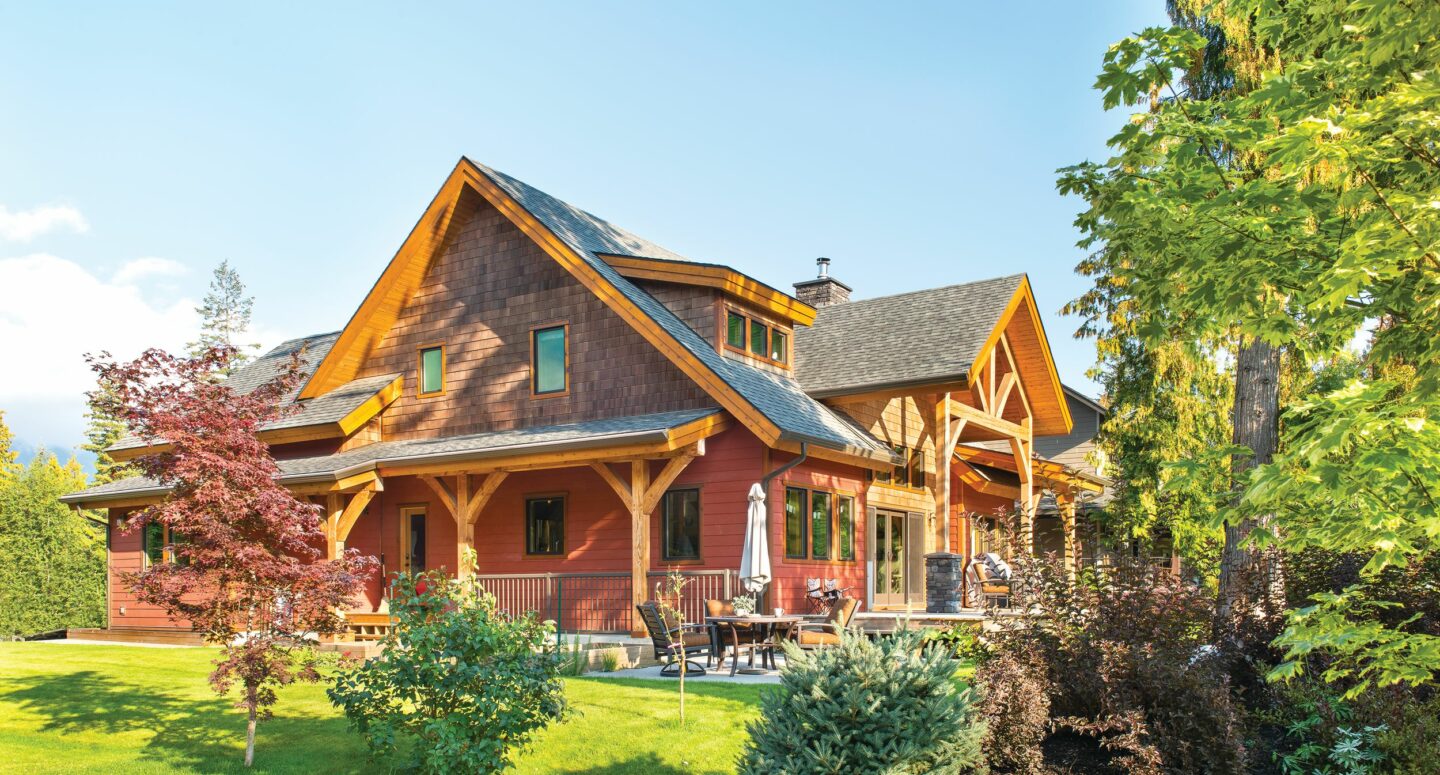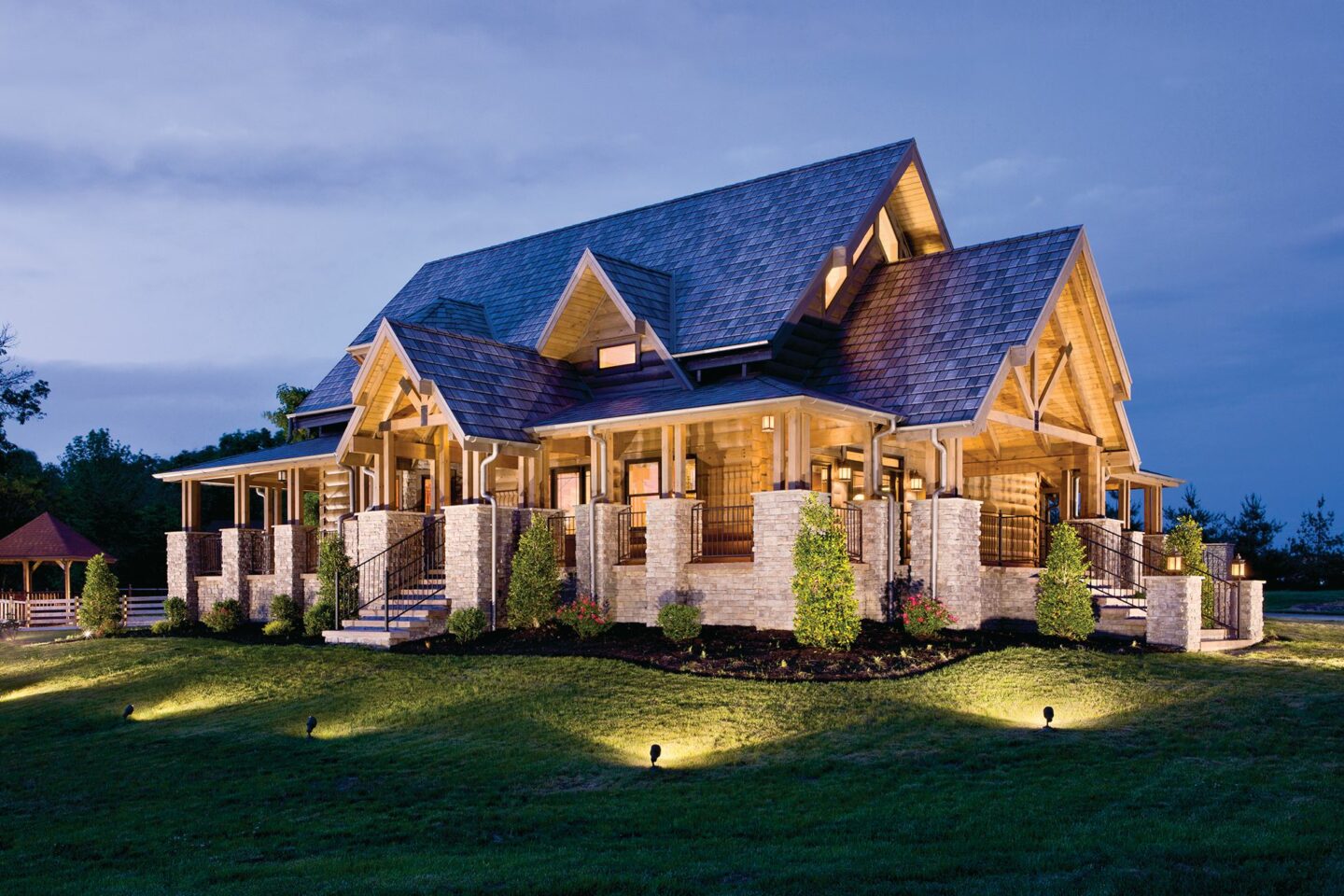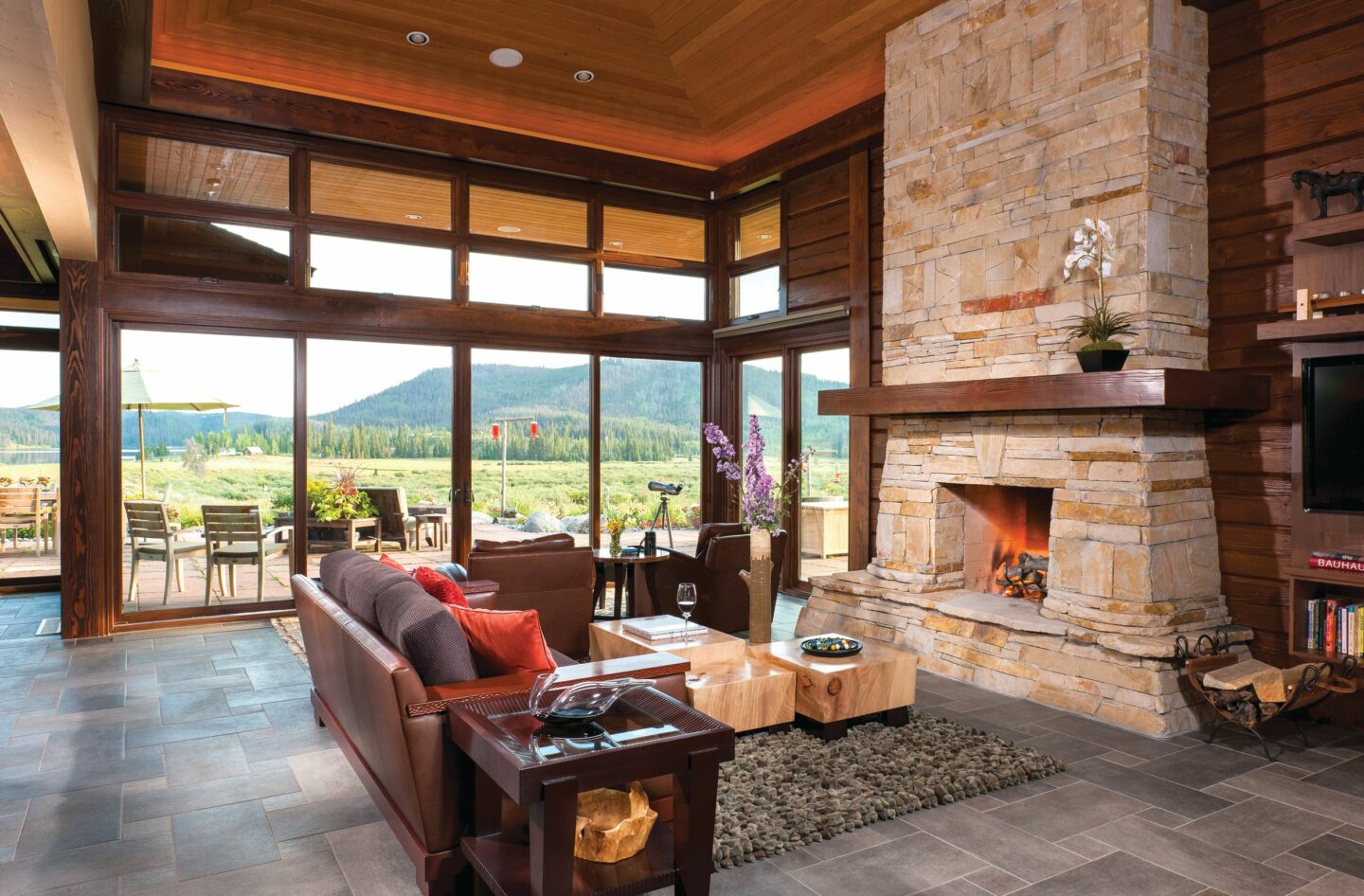The Pros and Cons of Building vs. Buying a Previously Owned Log or Timber Home.
After months of a hot real estate market, where sellers were fielding multiple offers and deals were happening within hours, the sudden uptick in interest rates froze the real estate market like we all suddenly stepped into Siberia. And not much has changed since.
Where does this leave log and timber frame home buyers? Is it safer to buy a previously owned log or timber frame home? Or is it wiser to a build new home? We will provide you with pros and cons for each choice to help gain some clarity during these unusual economic times. Years ago, when interest rates and building material costs were much lower than today, if you asked whether it was better to build a new home or buy a used home, the answer would invariably come down in the ‘build new’ camp. This is because innovation in building materials across the board has skyrocketed in the past 10 to 15 years, completely revolutionizing home building while enabling buyers to create high performance homes that use less energy while remaining completely comfortable year-round, with less maintenance over time. Better performing insulation, windows, doors, shingles, advanced sealing and staining materials—today’s new home buyer is well equipped to create a structure that will keep Mother Nature at bay with ease. As with buying an existing home, building a new home will come with advantages and disadvantages. Here are the facts so you can decide what matters most to you.

Pros of Building a New Log or Timber Home
- Complete Customization: If you have a dream floor plan and have picked out the perfect setting for that gorgeous design, then building that new home will give you the outcome you desire. There’s nothing like living in your dream home.
- Custom Contractor: Once you purchase the land and hire a custom contractor to complete your home, your project is on track to become your dream home. Working directly with your contractor enables you to get what you want.
- Less Worries/Less Maintenance: A new home means fewer maintenance costs for the foreseeable future. New home construction comes with a builder’s warranty on most building systems, particularly structural performance. New appliances will also come with lengthy warranties.
- Healthier Home: Provided you choose healthy indoor stains and sealants, your new home will be healthier indoors than the indoors an older home for the foreseeable future.
- Better Energy Efficiency: Today’s new homes are high performance homes, which will save you significantly, both initially as well as over the life of the home. The savings can amount to as much as a high-end vacation, compared to an energy-hog down the street that isn’t as well insulated.
Pros of Buying an Existing Log or Timber Frame Home
- Certified for Occupancy: While the existing log or timber frame home may not be your specific definition of “perfect,” a home that is on the market is a habitable and move-in-ready domicile.
- Possibly More Affordable: Provided you live in an area where log and timber frame homes are common, you may find a home on the market that’s competitively priced with other conventional custom homes. This will likely be more affordable than the cost to build a new home.
- Mature Landscaping: A home that’s been around for a few years may have mature landscaping that can provide privacy from neighbors and save you the money and labor of having to do it yourself.

Cons of Buying an Existing Home
- It’s Stressful: Searching for just the right log and timber frame home can be stressful. Even with much of the market frozen in place, the real estate market still favors sellers, who are sometimes fielding multiple offers, sometimes above the asking price. Buyers, in contrast, can face overly priced homes, even bidding wars, or multiple rejected offers. Working with a savvy broker can be a life saver in these situations.
- Remodeling or Renovation May be Needed: An existing log or timber frame home may need remodeling or renovations to help bring it into the “perfect” category. With money and time all things are possible but ultimately it could cost you more than building a brand-new home.
With the above considerations in mind, ultimately you’ll know what’s best for you and your family.

